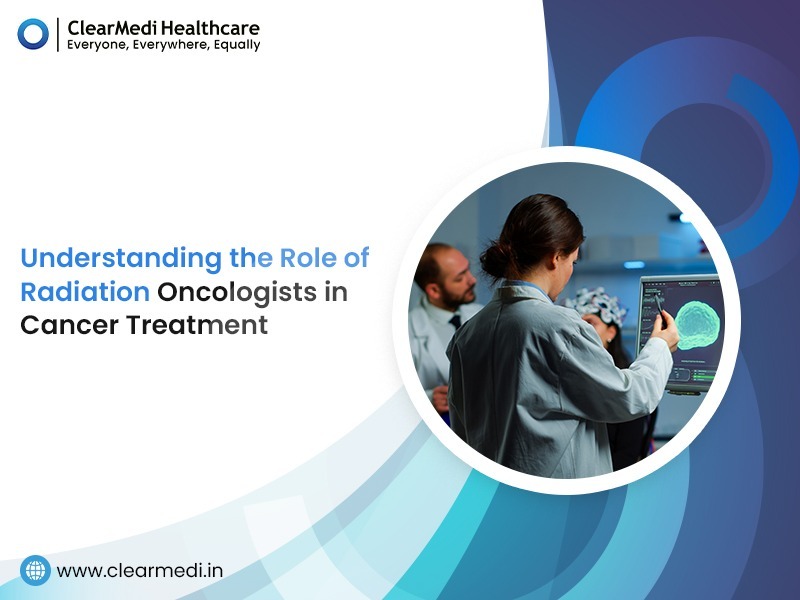The Greatest Guide To Arogyajivan Medical Tourism For Oncology
The Greatest Guide To Arogyajivan Medical Tourism For Oncology
Blog Article
6 Simple Techniques For Arogyajivan Medical Tourism For Oncology
Table of ContentsThe Buzz on Arogyajivan Medical Tourism For OncologyOur Arogyajivan Medical Tourism For Oncology DiariesHow Arogyajivan Medical Tourism For Oncology can Save You Time, Stress, and Money.Not known Incorrect Statements About Arogyajivan Medical Tourism For Oncology Our Arogyajivan Medical Tourism For Oncology PDFsThe 10-Minute Rule for Arogyajivan Medical Tourism For OncologyLittle Known Questions About Arogyajivan Medical Tourism For Oncology.
If you have cancer cells, your healthcare company will advise one or more means to treat the illness. One of the most usual therapies are surgical procedure, chemotherapy, and radiation. Various other choices include targeted treatment, immunotherapy, laser, hormonal therapy, and others. Right here is a summary of the various therapies for cancer cells and exactly how they work.Cancer cells grow and separate faster than typical cells in the body. Since radiation is most hazardous to quickly expanding cells, radiation treatment damages cancer cells much more than regular cells. It utilizes compounds made by the body or in a lab to help the immune system job harder or in a more targeted method to fight cancer cells.
Some have toxins or contaminated compounds affixed to them. Immunotherapy is provided by IV. Hormonal agent therapy is made use of to deal with cancers that are sustained by hormones, such as breast, prostate, and ovarian cancers cells. It utilizes surgical treatment, or medicines to quit or obstruct the body's natural hormonal agents. This helps reduce the growth of cancer cells.
The medicines are offered by injection or as pills. Hyperthermia uses warmth to damage and eliminate cancer cells without damaging normal cells. It may be made use of for: A tiny area of cells, such as a tumorParts of the body, such as an organ or limbThe whole body The warm is delivered from an equipment outside the body or through a needle or probe put in the tumor.Laser treatment utilizes an extremely slim, focused light beam of light to ruin cancer cells. Thin fibers at the end of television direct the light at the cancer cells. Lasers are also made use of on the skin. Lasers are usually used with other sorts of cancer treatment such as radiation and radiation treatment. In photodynamic treatment, an individual obtains a shot of a medication that is delicate to a special kind of light.
The smart Trick of Arogyajivan Medical Tourism For Oncology That Nobody is Talking About

An oncologist is a cancer cells medical professional. These doctor specialize in oncology the branch of medicine that concentrates on diagnosing, hosting and treating cancer. AdvertisementCleveland Facility is a charitable academic clinical facility. Advertising and marketing on our website assists support our goal. We do not endorse non-Cleveland Center services or products. A check out to an oncologist gives you an opportunity to speak with a specialist that comprehends what you're experiencing.
They're all set to help, and they'll walk with you every action of the way. Oncologists can: Run tests to identify cancerOffer a consultation check these guys out on a previous diagnosisIdentify therapy optionsDiscuss each option's advantages and side effectsOversee cancer cells treatmentManage post-treatment care Seeing an oncologist doesn't always indicate you have cancer cells. An oncologist gets included if you have signs and symptoms that may be cancer cells.
8 Easy Facts About Arogyajivan Medical Tourism For Oncology Shown
Several cancers cells are a lot more treatable in the very early stages. Cancer cells is an intricate condition.
Radiation can shrink lumps before surgery or eliminate staying cancer cells after surgery. You could have radiation as a stand-alone therapy or in mix with other treatments.
Not known Factual Statements About Arogyajivan Medical Tourism For Oncology
Do I have cancer cells? Your oncologist is right here to help you browse these feelings. When your oncologist gathers the details they need, they'll: Discuss the outcomes of your testsSend their searchings for to the medical care provider who referred youTell you whether you have cancer cells and if so, what kindTalk to you about different therapy optionsListen to your worries and anxietiesGive you resources that can offer support and added informationYour first oncology see may take up to 3 hours.
Oncology is the research of cancer. Experts educated in oncology offer care for people that are at risk for cancer cells, being treated for cancer, and living with cancer cells after treatment.

The Buzz on Arogyajivan Medical Tourism For Oncology
Some kinds of cancer cells happen moved here most often in these younger age teams. When these kinds of cancer sometimes happen in adults, those grown-up individuals may choose to work with a pediatric oncologist.

In some cases, a surgical oncologist may be the very first expert an individual sees. Often when cancer is suspected yet not identified, an oncologist might additionally be entailed. Some individuals with blood disorders that may or might not be malignant could be described a hematologist oncologist. Many individuals will continue seeing their oncologist for follow-up appointments to look for indications of cancer returning and to manage any negative effects from therapy.
The Buzz on Arogyajivan Medical Tourism For Oncology
If you have a cancer diagnosis and are evaluating your therapy options, think about taking part learn this here now in a scientific trial. Although they may appear frightening in the beginning, professional tests can be incredibly valuable regardless of what kind or phase of cancer cells you have. Benjamin Levy, M.D., scientific supervisor of the Johns Hopkins Kimmel Cancer Center at Sibley Memorial Medical facility and a lung cancer scientist, explains some of the factors to sign up with a clinical trial.
Report this page